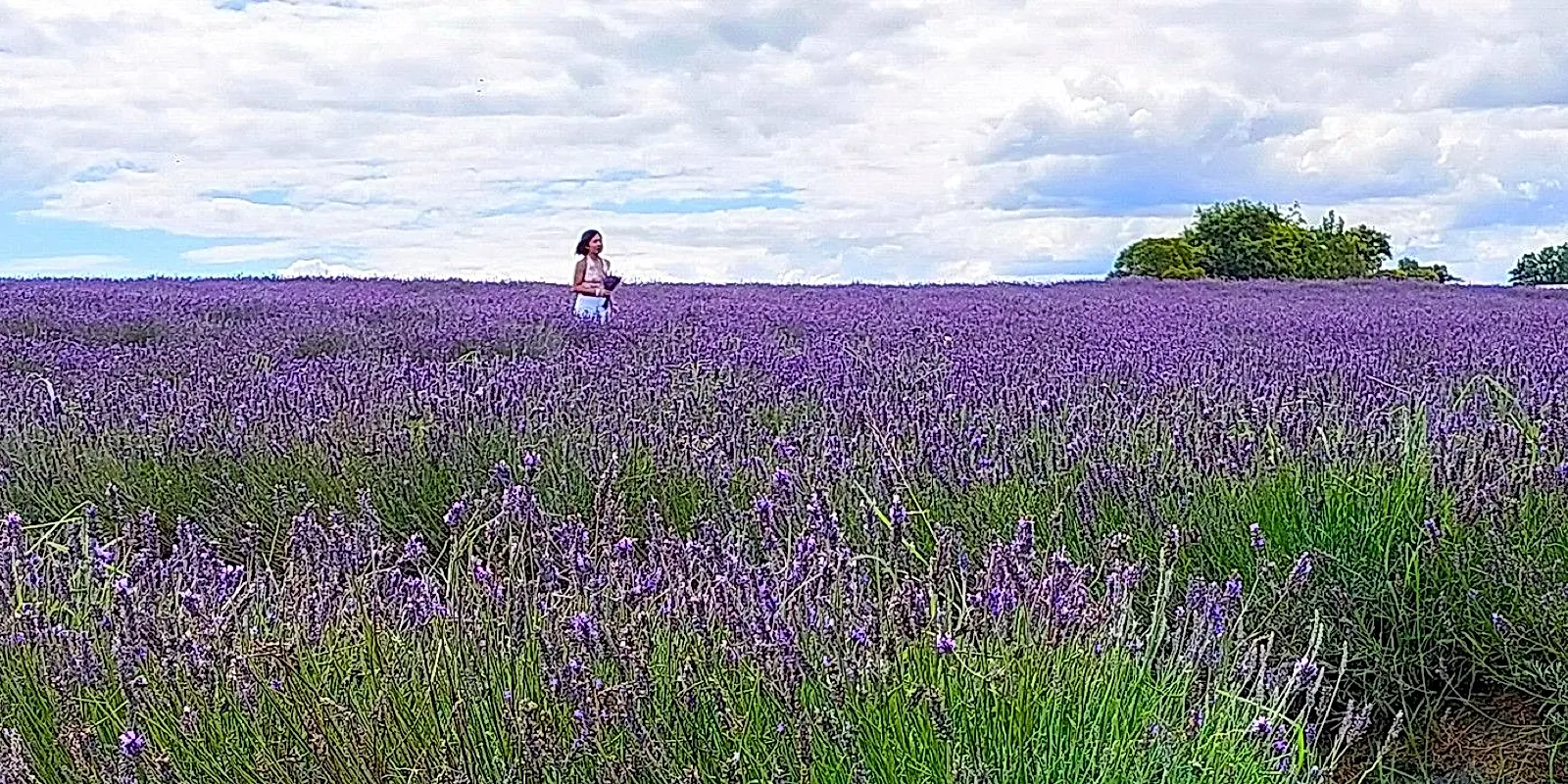
Portrait of a country woman
Monique looks at us over the top of her trendy red glasses. “Saler avec abondamment, ” she advises loudly, wagging a finger at us as we stand in her dark, stone-floored kitchen. “A-BON-DA-MMENT’.” Carefully writing out an address and phone number from the local Yellow Pages, she gives us loud and explicit directions for the ‘taxidermist’, a man who, she confides, has never let her down.
We’re here on a mission. Our neighbours have their own smallholding, sharing their lives with a collection of the healthiest sheep, ducks, chicken and geese I’ve ever seen. They are anxious to find a tannery to prepare the skins that will soon be rolling off the backs of two fine ‘pom-pom’ sheep.
Handsome, brown and very woolly, like big, soft walking hay bales, the pom-poms graze the field next to our rented property.
They’ve had a happy life in the French countryside; reared and raised naturally and with care and kindness, they’ve enjoyed their seasons in the sun, snow, wind and rain, but the slaughter man has been summoned and it is time for them to take their place in the deep freeze.
Our neighbours are determined the pom-poms will, in some small way, live on, but their quest for a helpful tannery has so far been unsuccessful.
“Nothing else for it,” says my partner, “we’ll have to try Monique.”
She lives several kilometres away, the wise woman and her dogs, in a grey stone Charentaise farmhouse.
Wiry, canny her grey hair tied back into a tight, plaited bun, Monique is part Colette’s mother, part Simone de Beauvoir. Like Sidonie, she knows nature’s moods, how it can cure and nourish, but can all too cruelly take away. For her, homeopathy and herbalism are not trends or fads; like all the country women of her generation, and many before, there was no alternative to hedgerow nettles to calm fevers and relieve colds.
Just a girl during the Occupation, she accompanied her father on the long, weekly trek to Niort to report to the Gestapo’s local headquarters. She remembers those who were taken away and never returned; the courage of the local Maquis and the cruelty of the reprisals when peace was declared.
She trained as a seamstress before becoming a farmer’s wife, refusing to give up her books and music. She loves Jaques Brel, respected Serge Gainsbourg and her kitchen bears witness to the Parisian artist who came to stay in the 1960s and who decorated the walls with Bardo-esque girls in bikinis.
Politics and France’s world affairs both exasperate and upset her. She has no more truck with the Left than the Right and she is still shamed by the French war in Algeria. “We treated those people worse than dogs,” she tells us.
The taxidermist’s details committed to paper, she stands up, scaring the sheepdog puppy who crept in as she studied the phone book. She sees it trying to take food from the cat’s bowl and rebukes its temerity by snapping her red-framed gasses against its back.
“It has to learn early,” she says.“Now follow me.”
Monique leads us to a small room she calls her bazaar. On the tables and shelves are her treasures; trinkets in bowls, dried flowers, a stuffed squirrel, a pheasant and the mounted head of a young roe deer - the handiwork of the Niort taxidermist.
She pulls back sheets on a table. Underneath a sky-blue and red crocheted blanket lie three, rich-brown sheepskins, their soft, warm tufts of wool slip between our fingers as we smooth and admire them.
“The secret is in the salting” she says. “Once they’re off, salt those skins with abondamment - they can’t have enough salt.”
Her fingers fold back the corner of one of the sheepskins; it’s perfection scarred by a ragged hole.
She shakes her head. “Not enough salt… not enough salt.”
Monique pauses to show us some of her treasures. She tells us her that her oil painting of roses had to be done on a wooden board because it was wartime and there was nothing else to use. She holds up a brass pestle and mortar from Morocco. She shows us pictures of her family, of when she was a girl, grinning at the camera with her cousin.
It’s getting late and the dogs need their walk. We say goodbye, exchanging the customary three kisses and I’m struck again by her dignity, her sagesse, and an uncommon beauty that only blesses the old.
The constant shepherd follows her dogs along the hamlet paths. She turns and waves.